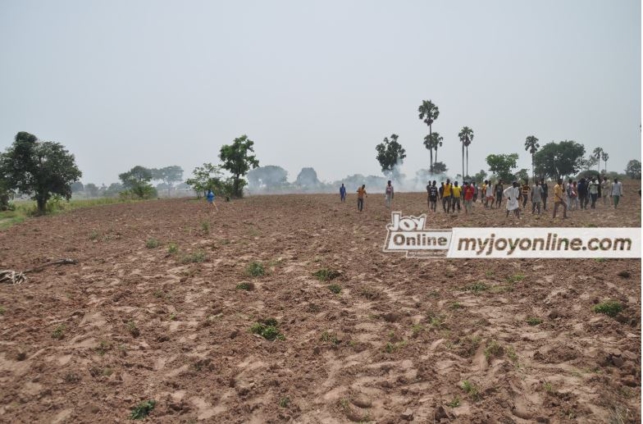As Ghana commemorates Green Ghana Day, a new study conducted by the Institute of Statistical, Social and Economic Research (ISSER) has revealed alarming statistics about the country's environment and natural resources.
The report highlights that approximately 35% of Ghana's land is under imminent threat of desertification, necessitating immediate action to combat this growing crisis.
The environment has long been a crucial component of Ghana's socio-economic development, providing natural resources, sustenance, and employment opportunities. However, improper management of these resources has resulted in detrimental consequences that undermine the country's social and economic progress.
Using the Environmental Systems Framework, the ISSER report shed light on the continuous degradation of various environmental elements, including the atmosphere, freshwater, biodiversity, and land, between 2016 and 2022.
These findings exposed the pressing need for comprehensive policies and regulations to address the escalating environmental challenges in Ghana.
One of the concerning trends highlighted in the report was the rising temperatures experienced in the country over the years, with 2020 registering the highest increase, and closely followed by 2016.
Ghana's greenhouse gas emissions have also seen a significant uptick, standing at 58.56 MtCO2e in 2019, representing a 16% surge compared to the baseline levels in 2016.
The issue of freshwater pollution has been exacerbated in recent years, primarily due to the prevalence of illegal small-scale mining, known as "galamsey." This activity has resulted in severe contamination of water bodies, posing a significant threat to aquatic ecosystems and human health.
The report further highlights the critical state of Ghana's wildlife, with several species, including the blue whale, common chimpanzee, Egyptian vulture, African grey parrot, and Baker's wood mouse, being classified as endangered. This alarming trend underscores the urgent need for concrete efforts to protect Ghana's unique biodiversity.
To address these environmental challenges, ISSER recommends a series of strategic measures and actions. These include expediting the implementation of the long-term National Development Plan of Ghana (2018-2057), empowering environmental sustainability enforcement bodies and institutions, promoting climate-smart agricultural practices, accelerating the implementation of the community mining module, and increasing public awareness about the importance of environmental resilience.
In light of the upcoming Green Ghana Day, ISSER also emphasises the need for meticulous monitoring of the growth of trees under the 'Green Ghana Agenda.' It is crucial for the government to track progress accurately to ensure the success of this initiative and combat deforestation effectively.
Latest Stories
-
Saglemi Housing Project: Government promises transparency in divestiture
12 mins -
I don’t want to deceive myself as a politician – Alan Kyerematen
19 mins -
We will continue to provide more financing for Ghana despite not reaching agreement with Eurobond holders – IMF
32 mins -
Economic outlook for Sub-Saharan Africa including Ghana gradually improving – IMF
1 hour -
Ghana’s inflation to average 11.5% in 2025; policy rate expected to reduce sharply – IMF
1 hour -
Let’s prioritize research quality in higher education institutions for industrial growth-Prof. Nathaniel Boso
9 hours -
Herman Suede is set to release ‘How Dare You’ on April 24
12 hours -
Heal KATH: Kuapa Kokoo, Association of Garages donate 120k to support project
13 hours -
KNUST signs MOU with Valco Trust Fund, Bekwai Municipal Hospital to build student hostel
13 hours -
The influence Ronaldo has on people, Cadman Yamoah will have same on the next generation – Coach Goodwin
13 hours -
Gender Advocate Emelia Naa Ayeley Aryee Wins prestigious Merck Foundation Awards
14 hours -
South Africa bursary scandal suspects granted bail
15 hours -
Ecobank successfully repays $500m Eurobond due April 18
15 hours -
Re: Doe Adjaho, Torgbui Samlafo IV, call for Unity among Paramountcies in Anlo
15 hours -
Extortion and kidnap – a deadly journey across Mexico into the US
15 hours

